View all Standards for Florida Sunshine State Standards
TH.68.F.2.2 Identify industries within the state of Florida that have a significant impact on local economies, in which the arts are either directly or indirectly involved in their success.
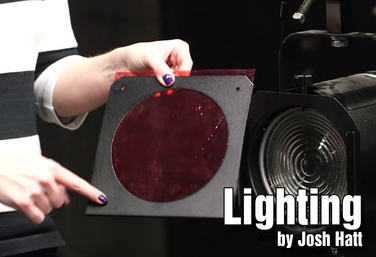
UNIT
Part of the Technical Theatre Mini Units Curriculum
Lighting
by Josh Hatt
This is an introductory mini-unit to lighting that can be achieved whether or not you have a lighting system. Students will work toward being able to demonstrate their knowledge of lighting effectiveness.
The questions of the unit include: How can light affect a scene? How can lighting affect the audience? What is the mood of the scene? How does lighting play a part in creating mood? How can you use shadows onstage? How does color impact the scene?
Read More
about Lighting
Read Less
about Lighting
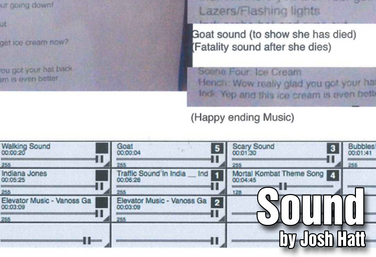
UNIT
Part of the Technical Theatre Mini Units Curriculum
Sound
by Josh Hatt
This is an introductory mini-unit to sound that you can use whether or not you have a sound system. Students will work toward being able to demonstrate their knowledge of sound effectiveness.
The questions of the unit include: What is effective sound? What sounds and music do we need in order to make our scene effective? How will we know our sound cues are effective?
Read More
about Sound
Read Less
about Sound

UNIT
Part of the Technical Theatre Mini Units Curriculum
Costuming
by Josh Hatt
If the costumes in a play are going to be effective, we need to be thoughtful about how we use them.
In this mini-unit, students will demonstrate their understanding costume effectiveness and address the following questions: What is the role of costume in the performance? How does color contribute? How does the style of costume affect a performance? How does costume indicate setting? Do you need costumes in a scene?
Read More
about Costuming
Read Less
about Costuming
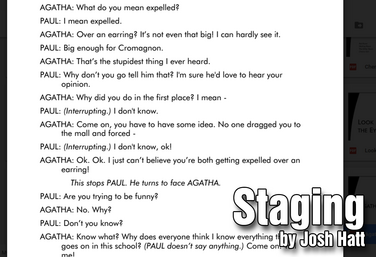
UNIT
Part of the Technical Theatre Mini Units Curriculum
Staging
by Josh Hatt
This is a mini-unit on staging. Along with the driving question for the unit, students will explore about how staging affects the performance. Students will draw a plot design (ground plan) to emphasize the need to plan where scenic elements will be placed. They will also practice taking cues from the script, in order to create staging.
Read More
about Staging
Read Less
about Staging

UNIT
Part of the Technical Theatre Mini Units Curriculum
Free Play Makeup
by Josh Hatt
This is a student centred mini-unit on makeup design. Makeup is useful in transporting an audience to a different world.
The purpose is for students to understand that makeup is a tool that theatre technicians can use in order to contribute to effective performance aesthetics; to understand basic makeup rules and care instruction; to understand how to complete a makeup design plot; to look at a project and figure out for themselves what they need to succeed.
Read More
about Free Play Makeup
Read Less
about Free Play Makeup
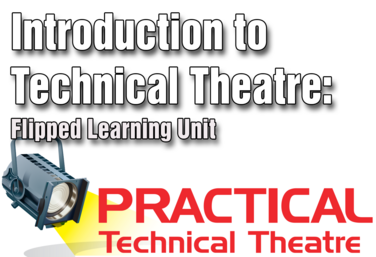
UNIT
Introduction to Technical Theatre: Flipped Learning
by Lindsay Price
When an audience watches a piece of theatre, they never see what goes on behind the scenes or know the people who work to make the production look its best. But theatre is a collaboration between what happens onstage and off.
This flipped learning unit will introduce students to the world of technical theatre. Through video, they will learn information on specific technical theatre roles and how they work together, types of stages, parts of a theatre and stage geography, and then apply this knowledge through in-class active-learning exercises.
For example, students will take on the role of a producer and decide how a budget will be divided among different departments. They will practice the calls a stage manager uses. The culminating assignment has students solve a common technical theatre issue: to design, create, and implement a solution for a unique stage direction in a play.
Read More
about Introduction to Technical Theatre: Flipped Learning
Read Less
about Introduction to Technical Theatre: Flipped Learning
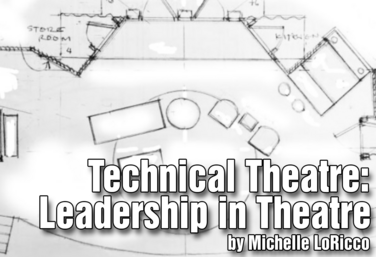
UNIT
Technical Theatre: Leadership in Theatre
by Michelle LoRicco
This Technical Theatre unit is designed to empower student leaders to analyze management roles in producing theatre while also using collaborative activities and reflection exercises to strengthen soft skills that every student should have. The unit covers the roles of producer, director, technical director, and stage manager, and ends in a culminating project.
Read More
about Technical Theatre: Leadership in Theatre
Read Less
about Technical Theatre: Leadership in Theatre
View all Standards for Florida Sunshine State Standards Standards Master List